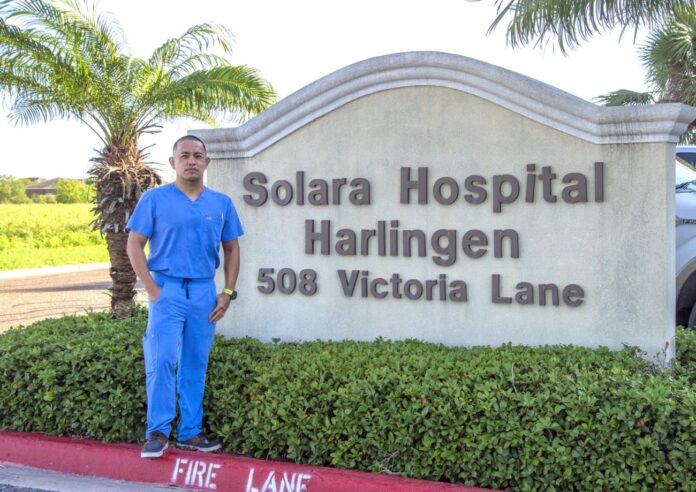HARLINGEN — The devastating effects of COVID-19 highlight all too clearly the need for long-term care.
“It’s very impressive how deconditioned patients are when they’re recovered from COVID-19 in just being physically incapacitated,” said Dr. Christopher Romero, internal medicine specialist at Valley Baptist Medical Center.
So powerful is this devastation to the physical body that recovering patients have difficulty with even basic activities of daily living.
“They may be too debilitated to go directly home,” Romero said. “They will need some ongoing medical attention until they recover enough to care for themselves independently or with the assistance of their families.”
Disturbing stories are everywhere of COVID-19 patients suffering stroke, pulmonary embolism, heart attacks and other maladies. Dr. Ameer Hassan, head of neuroscience at Valley Baptist Medical Center, says COVID causes thickening of the blood. Therefore, medical professionals immediately administer blood thinners to prevent stroke and blood clots. Steroids also seem to prevent the virus from worsening.
While less than one percent of COVID-19 patients actually die from the infection, survivors face a long road of recovery, much of it because of COVID-19’s trauma to the respiratory system.
“After having severe pneumonia and all the inflammation and damage done from the COVID virus, these patients may require supplemental oxygen for some time,” Romero said. “So facilities are being set up so they can continue to provide that supplemental oxygen the patients need.”
That’s what Retama Manor Nursing Center gives patients in a wing set aside strictly for COVID-19 cases. Jeff Tait, administrator, said his facility uses concentrators to supply patients with needed oxygen.
“A concentrator is like an oxygen tank but it’s plugged into a wall and it creates oxygen so it’s called an 02 concentrator,” Tait said. “You plug it in a wall and it creates the oxygen you would normally get in a compressed tank.”
While short-term acute care hospitals keep patients during the first few days of COVID-19, Solara can treat them for several weeks, said Jun Ellorimo, director of rehabilitation.
“We only take patients that are medically complex, that need an average stay of 25 days,” Ellorimo said.
Patients who come to Solara may have been on ventilators or BiPaps at a short-term facility like Valley Baptist or Harlingen Medical Center. A BiPap pushes air into the lungs.
“They don’t need the BiPap anymore,” Ellorimo said. “Now they are on just five liters of oxygen. Still high, but they’re still on five liters of oxygen. They are medically improving.”
Once patients begin breathing better and need less oxygen, they may need help getting out of bed and standing up. That’s where physical, respiratory and occupational therapists come in. Long stays in the hospital cause patients to lose up to 50 percent of their physical strength. Romero said medical professionals have not yet determined if this loss is caused strictly by long periods of being in bed or also by the COVID-19 itself.
“We know that when patients are not able to move about and exercise they will lose muscle mass, they will decondition, just normally,” Romero said. “But also all of the inflammation of the virus has been shown to have effects on almost every organ system well beyond just impacting the lungs.”
Romero said there is still much to learn about COVID-19.
“We’re going to know so much in 18 months,” Romero said. “It’s going to probably be the most rapid acquisition of knowledge on any disease in human history.”




